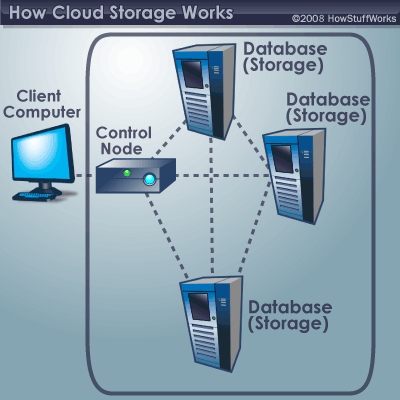Transform Your IT Infrastructure With Universal Cloud Services
In today's quickly advancing digital landscape, the change in the direction of universal cloud solutions has actually ended up being a calculated necessary for organizations seeking to enhance their IT infrastructure. The ability to improve operations, improve scalability, and boost overall effectiveness with cloud migration is indisputable. However, the actual concern lies in just how these services can be customized to deal with the special demands and challenges encountered by various businesses. By exploring the nuanced methods which global cloud services can be tailored and incorporated, organizations can truly unlock their complete possibility in accomplishing electronic makeover and competitive advantage in the market.
Advantages of Universal Cloud Provider
Embracing global cloud solutions supplies organizations a myriad of advantages that simplify operations and boost scalability in today's vibrant digital landscape. One crucial benefit is cost-efficiency, as cloud services eliminate the requirement for in advance investments in hardware and facilities. This pay-as-you-go model enables companies to range sources up or down based upon their needs, maximizing spending and minimizing general IT expenses. In addition, cloud services give versatility and availability, allowing workers to accessibility data and applications from anywhere with a net connection. This not just improves collaboration and productivity but also supports remote job arrangements, which have become increasingly widespread in the modern-day service world.
Furthermore, global cloud services offer enhanced protection steps, with data security, regular backups, and built-in catastrophe recovery systems. This makes sure that business-critical info is safeguarded from potential dangers and violations. Additionally, cloud solutions allow automated updates and upkeep, decreasing the worry on inner IT groups and guaranteeing that systems are constantly current and running efficiently. universal cloud storage press release. In general, embracing global cloud solutions can result in increased efficiency, dexterity, and competitiveness for businesses in today's electronic age.
Migration to Cloud Infrastructure
Moving to cloud framework deals numerous benefits, including scalability, cost-efficiency, and enhanced dexterity. Cloud solutions eliminate the requirement for significant ahead of time financial investments in physical equipment, minimizing funding expenses and permitting companies to pay just for the resources they make use of.
Another benefit of migrating to cloud facilities is the boosted agility it provides. Cloud systems use fast deployment of applications and services, enabling services to adjust swiftly to market modifications and remain in advance of competitors. Furthermore, the cloud assists in remote accessibility to applications and information, cultivating cooperation amongst geographically dispersed teams.
Enhancing Information Safety And Security Procedures

One important element of improving data security is carrying out multi-factor authentication (MFA) to include an extra layer of protection beyond passwords. MFA needs individuals to give two or even more verification variables, such as a password and an one-of-a-kind code sent to their smart phone, before accessing delicate information. This dramatically decreases the risk of unauthorized access, even if passwords are endangered.
Additionally, companies should on a regular basis conduct safety and security audits and susceptability evaluations to determine and resolve possible weak points in their data security infrastructure - linkdaddy universal cloud storage. By remaining proactive and constantly enhancing data protection measures, companies can efficiently reduce dangers and secure go to website their beneficial info assets in an increasingly electronic world
Carrying Out Cloud-Based Applications
In adapting to contemporary technical innovations, organizations are significantly leveraging cloud-based applications to optimize their procedures and enhance efficiency. Cloud-based applications provide a variety of benefits, consisting of scalability, cost-effectiveness, and adaptability. By applying cloud-based applications, businesses can enhance procedures, improve cooperation amongst teams, and boost general efficiency.

Additionally, executing cloud-based applications can lead to far better information administration and safety and security. These applications generally have built-in protection features and use information encryption to shield sensitive information.
Optimizing Cost-Efficiency
To attain optimum cost-efficiency in leveraging cloud-based applications, organizations must purposefully assess their source allotment and application. One essential method for taking full advantage of cost-efficiency is to adopt a pay-as-you-go model, where companies just spend for the solutions and sources they make use of. This versatility enables cost financial savings by eliminating the need to purchase costly infrastructure that might not be fully made use of.

Regular surveillance and optimization of cloud resources are essential for determining areas where cost-savings can be accomplished. By examining usage patterns and performance metrics, companies can make enlightened decisions about resource appropriation and additional enhance their procedures to make the most of cost-efficiency in the cloud.
Verdict
Finally, global cloud solutions offer various advantages such as cost-efficiency, versatility, company website improved safety actions, and automated updates. Moving to cloud framework enables companies to take advantage of cost-efficiency, scalability, and dexterity to remain affordable. Carrying out durable data security procedures and cloud-based applications more boost information protection and drive innovation. Taking full advantage of cost-efficiency via pay-as-you-go versions, automated source scaling, and optimization methods makes sure optimum application of cloud sources and general expense financial savings.
Additionally, cloud solutions provide versatility and access, allowing staff members to accessibility data and applications from anywhere with a net connection.Additionally, universal cloud solutions offer better protection procedures, with information file encryption, routine back-ups, and integrated calamity recovery systems. Cloud platforms provide quick deployment of solutions and applications, making it possible for organizations to adjust swiftly to market changes and remain ahead of competitors. In addition, the cloud helps with remote access to information and applications, promoting cooperation amongst geographically spread groups.
In conclusion, universal cloud services offer various benefits such as cost-efficiency, adaptability, enhanced safety and security actions, and automated updates.